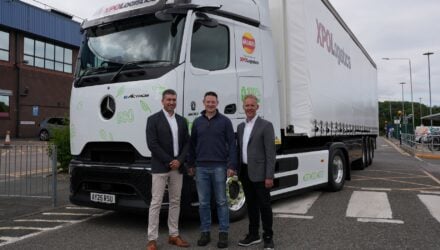
It gets worse
Report reveals that traffic is potentially going to cost the UK economy over £300bn between now and 2030
INRIX, a leading international provider of real-time traffic information, transportation analytics and connected driver services, today revealed results from its study with the Centre for Economics and Business Research (Cebr) into the future economic costs of gridlock in Europe if they continue at the current rates.
The study found that between 2013 and 2030, the total cumulative cost of congestion to the UK economy is estimated to be a staggering £307 billion, with the annual cost of congestion set to rise by 63% to £21.4 billion over the same period, mainly as a result of population growth and increasing GDP per capita.
In the UK last year, almost 70% of the workforce commuted to work by car during peak times, with the average British driver spending 124 hours stuck in gridlock annually, and this is set to rise to 136 hours in 2030 – equivalent to 18 working days a year.
“This study is a warning of the worsening impact of gridlock on the British economy and on household budgets,” said Matt Simmons, European director, INRIX. “We now know that congestion will continue to have serious consequences for national and city economies, businesses and citizens in the years to come. If we think this problem is bad now, we are in for a terrible shock come 2030.”
This has both a direct and indirect economic impact on car commuting households – direct costs relate to the value of fuel and the time wasted rather than being productive at work, and indirect costs relate to higher freighting and business fees from company vehicles idling in traffic, which are passed on as additional costs to household bills. Partly as a result of these costs being passed on to consumers, households are going see the cost of congestion rise by 44% to over £2,000 per year.
It’s worse in London though. Drivers in the UK’s most congested city spent more than 250 hours idling in traffic in 2013, which is double the UK average – and this is set to increase to 299 hours in 2030 which is equivalent to 40 working days a year. Although less than a third of Londoners commute to work by car, the cost of living and the value of time for the capital’s 1.4 million car commuters is at such a premium that in 2030, London is estimated to incur £9.3 billion from traffic congestion, an increase of 71% from today, costing each car commuting household more than £4,000 a year by 2030.
Commenting on the report, Syed Kamall, MEP for London, said: “It’s important to bear in mind that congestion is a symptom of the economic success of the growing London and UK economies. The smooth flow of traffic is essential to London’s continuing economic success and while there is no single solution to congestion, it is essential that investment in new technologies as well as in transport infrastructure keeps pace with economic growth.”
Ultimately it is clear from this report that cities need to be more innovative in their approach to tackling gridlock. Improving the public transport infrastructure may provide more choice for travelers, but it won’t solve the problem fully. Increased technology innovations such as multi-modal routing and real-time traffic in cars and on mobile devices should be adopted more widely, helping to create smarter cities worldwide.







